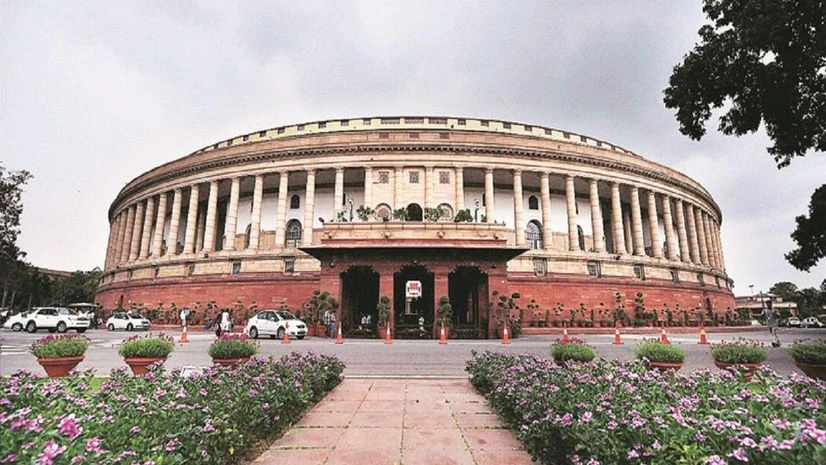A Parliamentary standing committee has recommended establishing a "dedicated cultural heritage squad" for the recovery of stolen antiquities, with a team of officers who can be trained on various aspects of retrieval, as followed by different countries.
The department-related Parliamentary Standing Committee on Transport, Tourism and Culture said this in a report laid in both Houses of Parliament on Monday.
The committee, in its "Three Hundred Forty Eighth Report on the subject 'Heritage Theft - The Illegal Trade in Indian Antiquities and the Challenges of Retrieving and Safeguarding Our Tangible Cultural Heritage'", recommended that the government set up a "multi-departmental task force" to speed up the retrieval process.
The task force should include senior officials from the Ministry of Home Affairs (police and investigation), the Ministry of External Affairs (for coordination with foreign governments), the Archaeological Survey of India (ASI) and senior scholars and experts.
The committee noted that besides undertaking archaeological research and conservation, the ASI is tasked with the huge responsibility of recovering stolen antiquities, according to an official statement issued by the Rajya Sabha Secretariat.
Also Read
Many countries such as Italy, Canada, the Netherlands, the US, Scotland, Spain and France have established dedicated cultural heritage squads with "a team of experts that focus their efforts singularly on tracking and recovering stolen antiquities", it said.
"The committee recommends that establishing a dedicated cultural heritage squad for the recovery of stolen antiquities with trained officers shall prove to be highly advantageous for ASI. The team may be trained on various aspects as per requirement of set procedures of retrieval, followed by different countries," the panel said in its report.
The committee also "recommended to the ministry to examine the proposal for creating a central sector scheme to ensure handholding and encouragement of the state governments for creation of a master database of antiquities in the country".
"The ministry may also formulate an incentivisation scheme for the involvement of interested and relevant agencies/stakeholders for record keeping of our tangible cultural heritage," it added.
On the National Mission on Monuments and Antiquities (NMMA) front, the committee noted that in the 15 years since its inception, "only about 16.8 lakh antiquities out of a total estimated 58 lakh antiquities ie about 30 per cent have been documented as on date".
The committee was informed by the ASI director general in the deposition that the figure of 58 lakh is only an estimate and there may well be many more antiquities existing in India.
"If so, it makes the slow pace of documentation under NMMA all the more alarming," the statement said quoting the report.
The committee further said it would like to know "the reasons behind the concerning observations made by CAG even after nine years having passed since the publication of its original Report in 2013. The Committee feels that documentation and maintenance of database of the country's antiquities is urgently needed and recommends that all out efforts should be made to complete the documentation process on a mission mode", it added.
The panel said it has been informed by the ASI that documentation in the 55 ASI Site Museums all over the country has been initiated and is likely to be completed by the end of 2023.
The committee felt that the documentation in "ASI-owned sites" should have been accomplished "much before". It learned from media reports that ASI sites such as Chandraketugarh in West Bengal are sources of numerous artefact that are sold worldwide in illegal antiquities markets while the sites itself lie abandoned, the statement said.
The committee found it perplexing that with all the emphasis on documentation as one of the major preventive measures against the theft of antiquities, the ASI has not documented the antiquities in its own Site Museums. The committee notes that the Ministry of Culture has been in existence since 1961 and the ASI predates the ministry by a century.
It noted the observation of the Public Accounts Committee in its report regarding the huge amount of public money spent over the years on preservation and conservation. Despite the antiquity of these two organisations, the years of efforts made towards conservation of Indian heritage, and the funds allocated, the documentation work which is the preliminary step in conservation has "not shown satisfactory progress", it said.
The committee also recommended that the ministry/ASI may "explore the possibility" of involving state governments and relevant bodies such as the Indian National Trust for Art and Cultural Heritage (INTACH), Indian Council for Cultural Relations (ICCR), Indira Gandhi National Centre for the Arts (IGNCA), National Culture Fund (NCF) and the French Institute of Pondicherry, among others, in the process of documentation of India's antiquities, the statement said.
The committee also recommended that a dedicated team be constituted in ASI for better collaboration with such civil society organisations to enhance the documentation and recovery.
The panel noted in its report that the overall budget allocation for the Ministry of Culture is "only 0.075 per cent of the total budget, which is grossly inadequate", the statement said.
It observed that countries such as China, the UK, the US, Singapore and Australia spend "roughly 2-5 per cent of their budget on the promotion of art and culture, and a majority of the amount spent by these countries on art and culture is sourced from non-government sources which is not the case in India," it said.
(Only the headline and picture of this report may have been reworked by the Business Standard staff; the rest of the content is auto-generated from a syndicated feed.)

)
